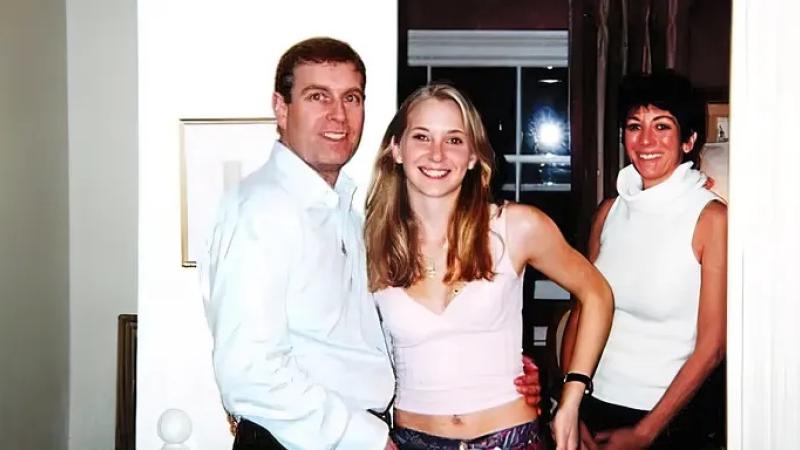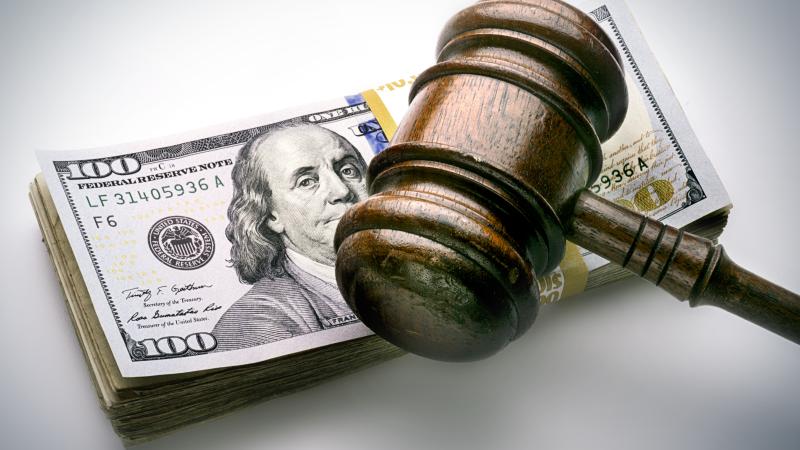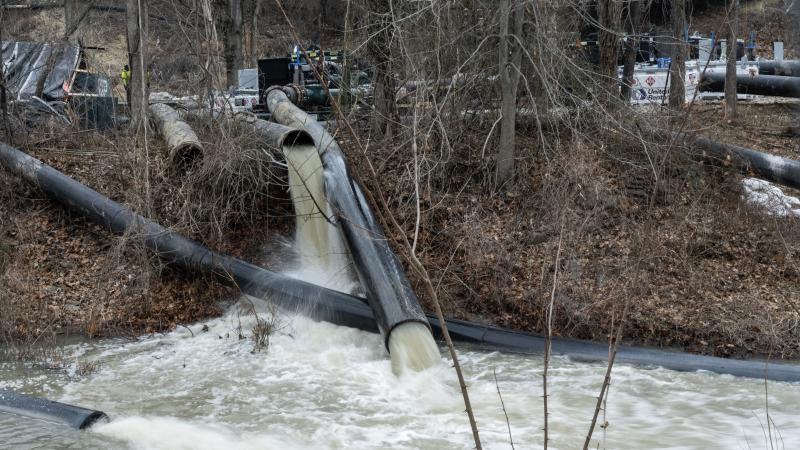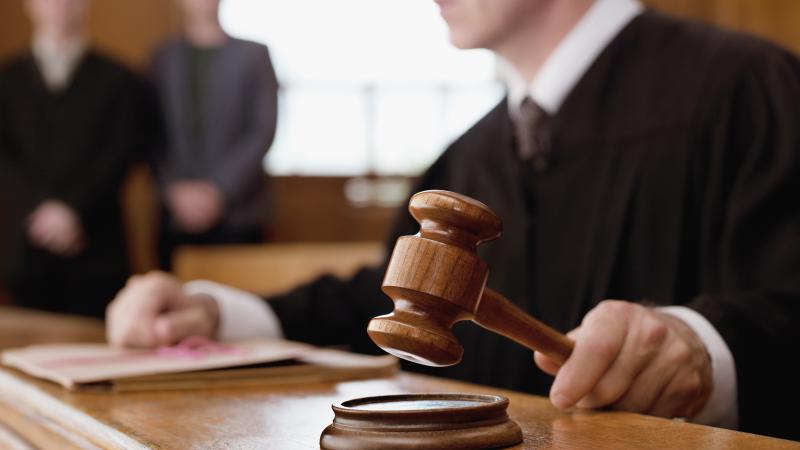House Oversight wants to gather evidence that could overturn Biden’s pardons, executive orders
Chairman Comer said the evidence his probe has uncovered could lead to questions about the validity of Joe Biden’s pardons, executive orders.
House Oversight Committee Chairman James Comer says his investigation into Joe Biden's mental decline as president could be used as evidence to overturn some of his pardons or executive orders because his senior staff have failed to prove he knew what he was signing amid accusations of mental decline.
“It's questionable whether or not it's legal to use an autopen on a legal document, but what's not questionable is if the President of the United States had no idea what was being signed with using the autopen in his name,” Comer told the Just the News, No Noise TV show on Friday. “Then, you know, that's not legal.”
Comer, a Kentucky Republican, said he believes the evidence his investigation uncovers can be used to also call into question the validity of some of the former president’s clemency acts, especially after the disastrous summer 2024 presidential debate in which Biden’s poor performance gave rise to questions about his mental capacity.
“I think at the end of the day, our investigation … could be used as evidence in trying to overturn some of those pardons and some of the executive orders, because the autopen was used so frequently … after that debate,” said Comer.
Former Harvard Law School professor Alan Dershowitz told Just the News in March that challenges to Biden’s autopen use would certainly end up before the courts.
"They will end up in court, and there are going to be two issues. One, the nature of what was signed – was it a pardon, or was it a bill from Congress, for example. And second, the nature of the autopen," he said.
"First, the nature of what's signed. If it was a bill, here's what the Constitution says: 'If he approves, he shall sign it.' So it says, 'sign it.' Sign it. So an autopen would raise a real problem if he signed it by autopen, which is not a real signature,” Dershowitz said of bill signed by the president.
Of pardons, the legal scholar said the Constitution does not require a signature, but “it will still raise the issue: Did he actually pardon? Or did somebody else just write the signature without really getting approval from President Biden? You know, we know there were mental health issues there. So there the issue will be: Did he approve the pardon?”
Biden emerged on stage at the first presidential debate of the 2024 campaign season and delivered a halting and “disoriented” performance, raising concerns among allies that the president was not up to the task of another term.
He stumbled through his opening remarks and appeared at times to struggle for the right words. And though he seemed to find his footing as the night went on, Biden also made several incorrect statements including that he is the only U.S. president this decade who doesn't have any troops dying anywhere in the world, Just the News reported at the time.
“I think there was a sense of shock actually, how he came out at the beginning of this debate," David Axelrod, a former top adviser to former President Barack Obama, said on CNN after the debate. "He seemed a little disoriented. He did get stronger as the debate went on. By that time, I think the panic had set in and I think ... there are gonna be discussions about whether he should continue."
Just one month later, Biden would drop out of the race and endorse his vice president, Kamala Harris, to run in his stead.
Biden had already been plagued by questions surrounding his mental capacity for years, mostly from Republicans. The administration largely kept the president behind closed doors and heavily restricted his access to the press. His public appearances, characterized by fumbling speech and poor memory, were embarrassing for the administration.
A Department of Justice Special Counsel tasked with investigating Biden’s alleged mishandling of classified documents after his vice presidency delivered a scathing assessment of the president’s mental acuity in his final report, which was released by the department in February.
Special Counsel Robert Hur’s report cited several factors contributing to his decision to decline filing any charges against Biden. One reason Hur provided: Biden’s poor memory.
“We have also considered that, at trial, Mr. Biden would likely present himself to a jury, as he did during our interview of him, as a sympathetic, well-meaning, elderly man with a poor memory,” Hur wrote.
Hur cited moments in the interview in which the president failed to recall the years he was vice president and forgot the year that son Beau Biden passed away after a battle with brain cancer.
After Biden left office, Comer launched an investigation into the former administration, to uncover how senior officials worked to cover up the president’s mental condition and into the use of an autopen to sign various presidential documents, from executive orders to pardons, during his final months in office.
Comer said what his committee has uncovered so far may be enough to call into question the executive orders and pardons that Biden issued in those final months.
“The evidence, it shows at the least, that Joe Biden really didn't know what was being done with those executive orders. He admitted to the New York Times that he didn't look, himself, at all those pardons, that he delegated that to staff. Well, that implicated himself,” Comer told Just the News.
“And I think that you know, at the end of the day, these Biden inner circle people haven't been able to prove that Joe Biden knew what was being signed with his autopen,” he continued.
Neera Tanden, the former director of Biden's Domestic Policy Council, told the committee that she directed the use of the autopen, but without knowing who in the president’s inner circle was giving ultimate approval for the acts.
"Ms. Tanden testified that she had minimal interaction with President Biden, despite wielding tremendous authority," Comer said of the interview, which took place in late June.
"She explained that to obtain approval for autopen signatures, she would send decision memos to members of the president’s inner circle and had no visibility of what occurred between sending the memo and receiving it back with approval. Her testimony raises serious questions about who was really calling the shots in the Biden White House amid the president’s obvious decline,” Comer continued.
Comer also subpoenaed and conducted further closed-door interviews with several of Biden’s other closest aides, including the White House physician, his former chief of staff, and senior policy advisers. But, so far, many have refused to answer the committee’s questions about the president’s health, which could shed light on whether Biden was able to approve the use of the autopen for signatures.
Biden has defended the use of the autopen since leaving office, telling the New York Times that he “made every decision.”
Biden granted an extensive interview to the paper last month. He also shed light on how he and his aides decided on pardons at the close of his administration and on how he approved them. The former president insisted that he made every decision when it came to the pardons, however, he noted that in some cases, like Biden’s categorical pardons, his aides did not read off individual names.
The paper also reported that Biden “did not individually approve each name for the categorical pardons that applied to large numbers of people, he and aides confirmed,” citing administration sources.
Dr. Kevin O’Conner, who cared for the president while he was in office, invoked his Fifth Amendment right and refused to answer any of the committee’s questions. Annie Tomasini, former deputy chief of staff, and Anthony Bernal, former first lady Jill Biden’s chief of staff, also both invoked the Fifth.
“These Biden inner circle people haven't been able to prove that Joe Biden knew what was being signed with his autopen,” Comer said. “Remember, about half the people we brought in have pled the Fifth and again … when you asked Dr O'Connor, the White House physician, a question, the very first question, were you ever told to lie about President Joe Biden's health? And he can't answer that. He has to plead the Fifth Amendment to avoid self-incrimination.
“I think that's pretty damning evidence that we had a president that wasn't at the top of his game, to say the least.”














